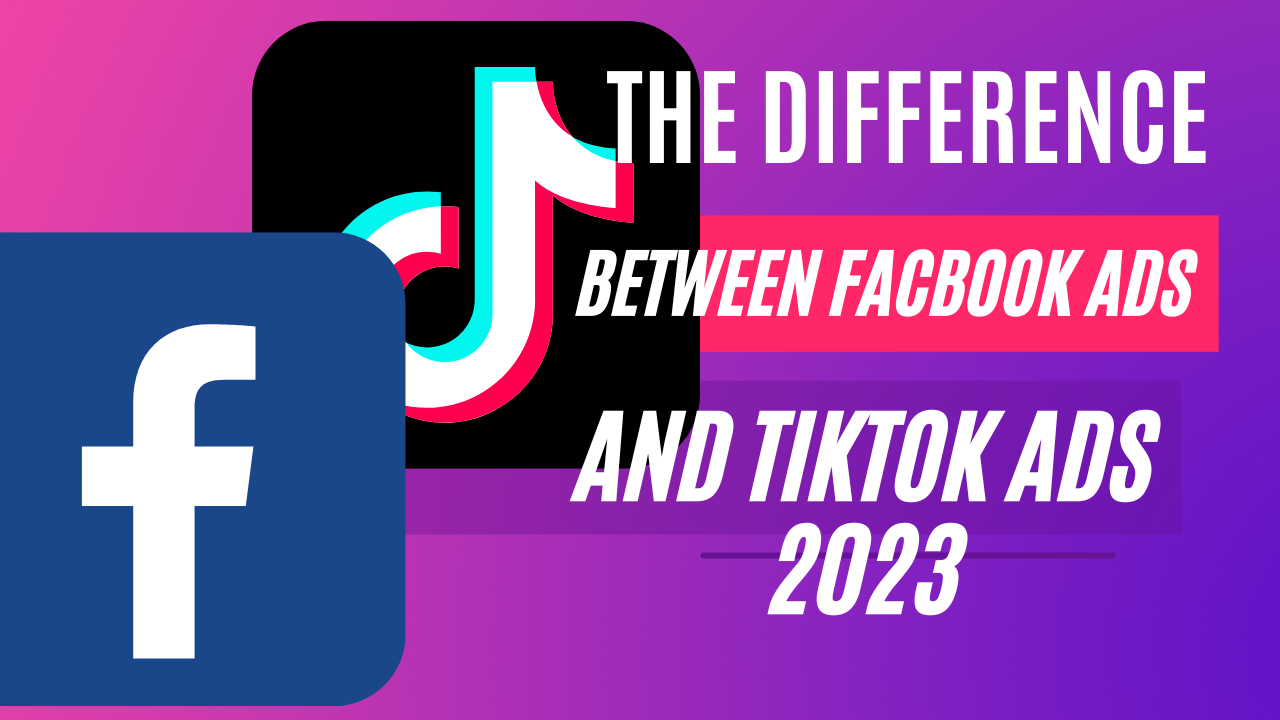|
Advertising on social media platforms is becoming an increasingly popular and effective way for businesses to reach their target audience. Two of the most popular platforms for social media advertising are Facebook and TikTok. While both platforms have a lot of potential for businesses to reach their target audience, there are significant differences between the two platforms in terms of their advertising capabilities, audience demographics, and advertising formats.
One of the biggest differences between Facebook and TikTok is their target audience. Facebook has a much broader audience, with users ranging in age from 13 to over 65. TikTok, on the other hand, is primarily used by younger people, with the majority of its users being under the age of 40. This difference in audience demographics means that the type of advertising that works best on each platform will differ. For example, businesses targeting a younger demographic may find TikTok to be a better platform for their advertising efforts, while businesses targeting an older demographic may find Facebook to be a better option. Another significant difference between the two platforms is their advertising formats. Facebook offers a variety of advertising formats, including image and video ads, carousel ads, and sponsored posts. TikTok, on the other hand, is primarily a video-based platform, with most of its advertising being in the form of short, creative video ads. This difference in advertising formats means that businesses will need to adjust their advertising strategies depending on which platform they choose to advertise on. For example, businesses that want to create video-based ads will likely find TikTok to be a better option, while businesses that prefer image-based advertising may find Facebook to be a better choice. In terms of targeting options, Facebook has a more sophisticated advertising platform, allowing businesses to target specific demographics, interests, and behaviours. TikTok, on the other hand, is still in the early stages of developing its advertising platform and currently has limited targeting options. However, TikTok is working to expand its advertising capabilities and is expected to offer more sophisticated targeting options in the near future. When it comes to advertising costs, both Facebook and TikTok offer a range of advertising options at different price points. However, Facebook tends to be more expensive than TikTok, especially for businesses looking to reach a large audience. This is due in part to the fact that Facebook has a much larger user base, making it more competitive and therefore more expensive to advertise on. TikTok, on the other hand, is still a relatively new platform and has lower advertising costs, making it a more cost-effective option for businesses on a tight budget. Finally, it's important to consider the level of user engagement on each platform. Facebook has a large and highly engaged user base, with users spending a lot of time on the platform and interacting with content. TikTok, on the other hand, has a highly engaged and rapidly growing user base, with users spending a lot of time on the platform and actively engaging with content. This high level of user engagement on TikTok means that businesses have the potential to reach a large and highly engaged audience with their advertising efforts. In conclusion, both Facebook and TikTok offer businesses the opportunity to reach their target audience through social media advertising. However, the differences between the two platforms in terms of their target audience, advertising formats, targeting options, advertising costs, and level of user engagement mean that businesses need to carefully consider which platform is the best fit for their advertising needs. By taking the time to understand the strengths and weaknesses of each platform, businesses can make informed decisions about which platform is right for them and maximize the effectiveness of their advertising efforts. |
AuthorRevel Loughlin Archives
July 2023
Categories |

 RSS Feed
RSS Feed
7/2/2023
0 Comments